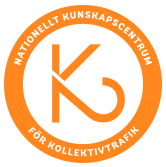Public Transport, Space-time Accessibility and Social Equity
Public Transport, Space-time Accessibility and Social Equity
Access to urban opportunities (jobs, shops, public and private services) is a crucial condition to guarantee equal opportunities of social participation. Accessibility emerges as a feature of the interaction between practices and social obligations (generating the need to move), available infrastructures and individual resources and constraints. It is therefore a relational property, which takes into consideration, at the same time, the characteristics of the actors involved, of what is to be accessed and the modalities and relevance of this access for the actor.
The aim of the research is to study and understand accessibility and mobility potential among groups living in different neighbors in Malmö.
Using a mixed-methods approach, the study will focus both
- on the perception and use of public transport / on the perceived spatio-temporal accessibility of urban opportunities by public transport
- on the actual public transport supply and on the actual spatio-temporal accessibility of urban opportunities by public transport
The study will include workshop with experts and stakeholders. The results will be used to produce guidelines to inform and develop policies aimed at integrating equity and accessibility into public transport planning.
The research is related to the K2 project “How can public transport contribute to accessibility and social equity?”.
Projektledare:
Chiara VCitrano
Parter:
K2, Malmö University
Finansiär:
K2, Malmö University
Budget:
2 000 000 kr
Period:
2018 till 2020
Publikationer kopplade till projektet
Spatiotemporal accessibility by public transport and time wealth: Insights from two peripheral neighbourhoods in Malmo, Sweden
Chiara Vitrano & Linnea Mellquist, Time & Society, 2022
